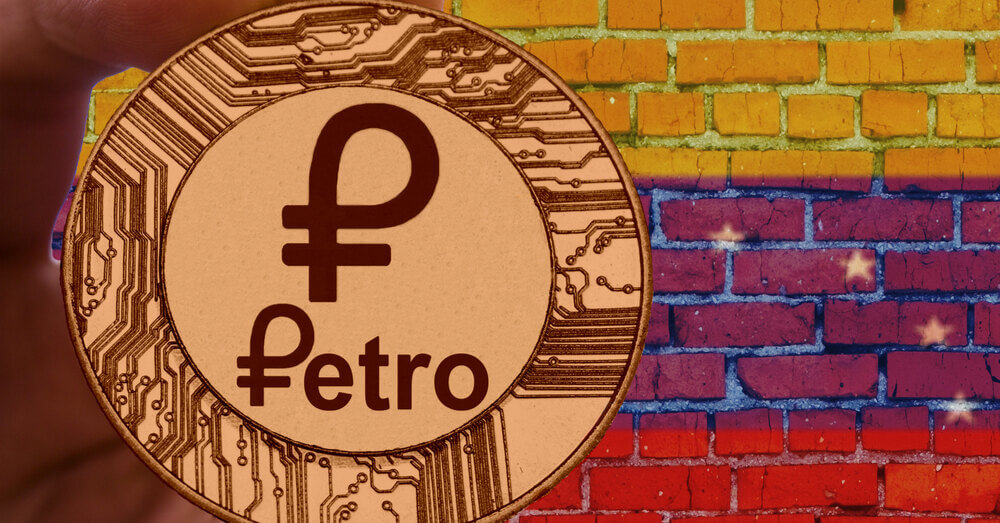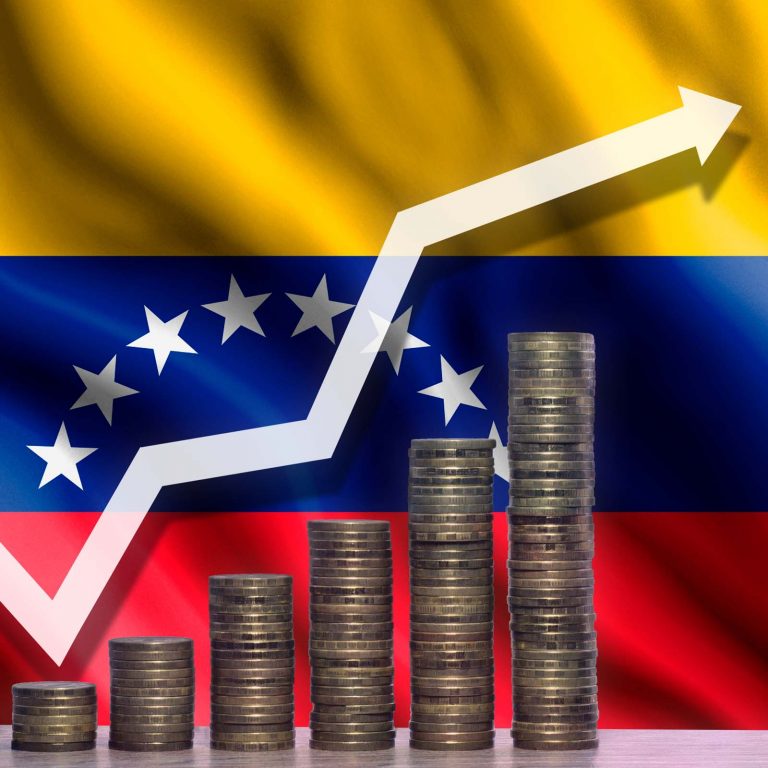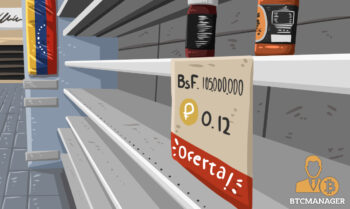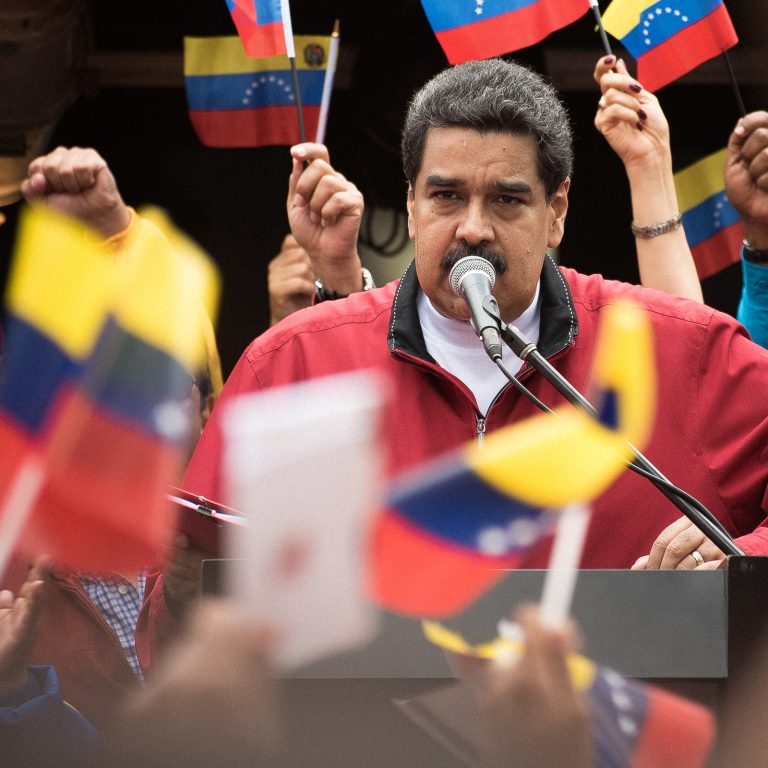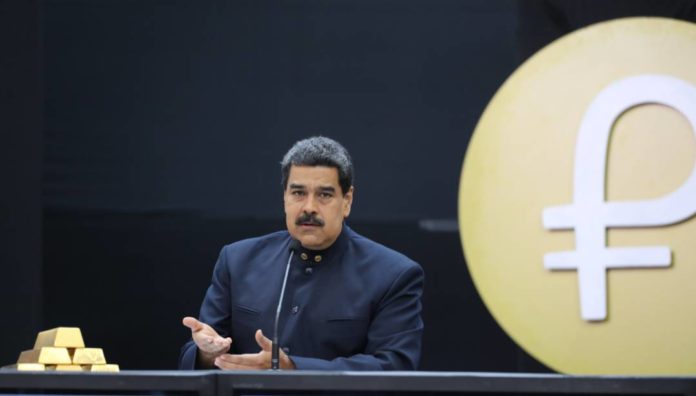2019-3-31 16:31 |
This is Part 2 of our article on Petro and Venezuela.
As discussed in Part 1 of the article, the launch of Petro in Venezuela created a massive wave of apprehension among the world community, with many leaders condemning the Nicolas Maduro government for launching a cryptocurrency over focusing on improving the country’s failing economy. The United States was not far behind either, and has been heavily involved in Venezuela recently. This article looks at the steps taken by the US to oversee and check Venezuela, as well as the current scenario in the financially ravaged South American country.
The United States Point of View
Venezuela and the US have had a tumultuous relationship in the past, with the first clear line of animosity drawn in 2015 when the then-President Barack Obama signed sanctions halting crude exports from within Venezuela. This decision formed the backbone of Nicolas Maduro’s animosity towards the US, with the South American country making it clear at the World Trade Organization that the sanctions against it were ‘discriminatory’.
Obama’s successor, Donald Trump, has widened the chasm between the two countries by backing Juan Guaido, the leader of the Venezuelan Opposition party. Guaido also received support from other countries like Canada and Germany, forcing Maduro to speculate about a grand coup orchestrated by the world’s most powerful nations. The sheer amount of opposition did not stop the Venezuelan government from boosting its Petro prowess though, as the government established its own cryptocurrency regulatory authority called Sunacrip.
Since its inception, Sunacrip has released multiple decrees and articles to integrate Petro into the workings of the Venezuelan economy. One of the official decrees from Sunacrip says,
“The sender of the remittances referred to in this ruling is obliged to pay a financial commission in favor of Sunacrip up to a maximum amount of 15% calculated on the total of the remittance.”
The developments around Petro peaked on 11 March, 2019, when the US government reportedly discovered that there were Russian links in money transfers to Venezuela. Evrofinance Morasbank, a bank jointly owned by Russian and Venezuelan state entities, had assisted and provided support for the PDSA, said the United States Treasury. Steen Munchin, the United States’ Treasury Secretary, had said,
“The United States will take action against foreign financial institutions that sustain the illegitimate Maduro regime and contribute to the economic collapse and humanitarian crisis plaguing the people of Venezuela.”
The bank did not retaliate to the comments made by the Treasury, promising to continue working for its clients. However, Russia made a strong statement, stating that it will fund the bank if the US continues its clampdown.
Venezuela right now
With the intervention of multiple countries into the grand scheme of things, it is hard to ignore who the real victims are: the people of Venezuela. They were supposed to be relieved off their financial troubles with the launch of Petro, but all it has done is broken the system even more. It is not like Petro didn’t take off due to the lack of cryptocurrency knowledge in the country. In fact, the truth is far from it.
During the launch of Petro, Dash, another popular cryptocurrency, was already being used in public and private transactions. The country also had its own Bitcoin ATMs, with some speculating that Venezuela was so involved in the cryptospace that a dip in transactions resulted in a significant dip in the total BTC transactions volume.
The integration of Petro into the financial system of Venezuela was supposed to be a landmark move, aimed at arresting the country’s degradation. Looking at the factors mentioned earlier, it is clear that the state-backed cryptocurrency has not done anything to save the country. Last year, when Maduro spoke about the cryptocurrency, he claimed that it will change the way citizens live in the country. In some twisted way, that is exactly what has happened.
With the latest blackout, Venezuela has fallen deeper into the chasm. Schools were closed, communications were negligible, and food and water resources were depleting. In the midst of all this, Maduro’s main focus has been to curb Juan Guaido’s ascendancy. On 28 March, the incumbent government banned Guaido from holding any public office for the next 15 years, a rule brushed off by the interim President who stated,
“It doesn’t matter. We will continue to raise our voice from the streets.”
Despite the aloofness of the government and the President, organizations such as the Red Cross have been trying to protect the citizens of Venezuela. Just recently, the humanitarian organization managed to broker a deal within the country to allow delivery of aid to the affected people. Red Cross claimed that the scale of operations was similar to the Syrian situation in terms of people affected.
Petro’s failure was again evidenced when Venezuelan citizens continued to use fiat money and credit cards for their day-to-day activities, instead of Venezuela’s own cryptocurrency. The movement of Petro within the country has also been scarce as only a handful of people have reported to having used it. Links with Russia have only hurt Petro’s reputation, with reports still waiting to confirm Vladimir Putin’s involvement in the creation of Petro.
Venezuela is now a playground for Russia-US geopolitics and the only victims are the citizens of the South American country. Cryptocurrencies have provided some hope though, with on-ground reports showing that people have actually used Bitcoin and Bitcoin Cash for ‘much needed financial freedom.’ Right now, Venezuela is holding on for dear life, with help pouring in from different quarters of the world. However, one thing is for certain: Petro is not the country’s savior.
The post Petro and Venezuela: The arrival of United States and the South American country’s crumbling economy appeared first on AMBCrypto.
origin »Petro (PTR) íà Currencies.ru
|
|
